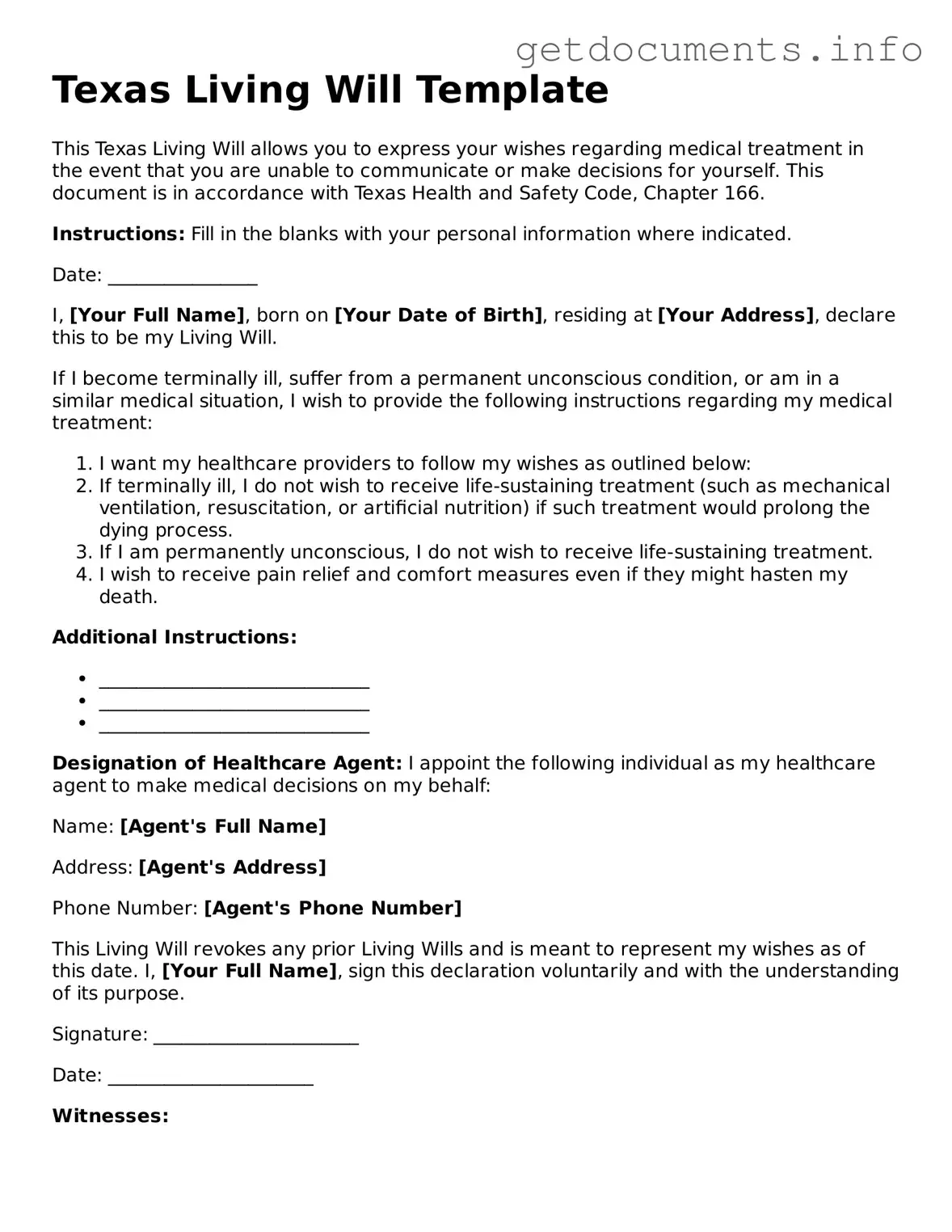Free Living Will Template for Texas
A Texas Living Will is a legal document that allows individuals to express their wishes regarding medical treatment in the event they become unable to communicate their preferences. This form ensures that your healthcare decisions are respected, providing clarity for both your loved ones and medical providers. Take control of your future by filling out the Texas Living Will form; click the button below to get started.
Access Living Will Editor

Free Living Will Template for Texas
Access Living Will Editor
Got places to be? Complete the form fast
Fill out Living Will online and avoid printing or scanning.
Access Living Will Editor
or
⇩ PDF File
